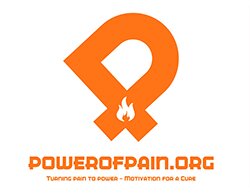| Medication: |
Valium (Diazepam) |
| Dosage: |
10 mg |
| Price: |
from $3.49 per pill |
| How to Buy |
Get Started Now |
Valium (Diazepam)
Valium (Diazepam) is an excellent aid in the complex therapy of somatic diseases. This drug is aimed at supporting the nervous system. The medicine is a tranquilizer and a moderate sedative.
The drug works individually. Not everyone may experience drowsiness when using it. In the case of regular use in moderate doses, drowsiness is not caused at all since, over time, the body adapts to the drug. It helps relieve excess anxiety, removes worry, and allows people to assess a situation adequately and without panic.
Thus, the drug helps people avoid exacerbations and maintain the necessary calm. Thanks to it, a person can find normal health.
Indications for use
Valium is prescribed to patients against the background of many different diagnoses. Thus, the drug is used in treatment in the following cases:
- To relieve anxiety, which manifests itself in the form of unreasonable anxiety.
- With convulsions, neuroses, arthritis, polyarthritis, bursitis and arthrosis. Against the background of psychoses and various phobias.
- With heart attacks, cardialgia, and angina.
- Against the background of headaches caused by muscle strain.
- In the presence of vertebral syndrome, which is a complex disease of the spine.
- Alcohol addiction. In this case, the drug helps to overcome withdrawal symptoms.
- The appearance of mental stress.
- Hypochondria, eczema, dermatitis.
- With schizophrenia, this drug helps to alleviate the manifestation of the disease.
- Valium also copes well with sleep disorders.
- With stomach ulcers, this drug helps to reduce acidity.
- With menstrual irregularities or climacteric disorders.
- Against the background of arrhythmia, Valium (Diazepam) helps to resist heart rhythm disturbances.
- Relief of hypertensive crises.
- Valium is often used for anesthesia during manipulations that can cause pain. This drug is capable of changing the threshold of sensitivity to pain.
Contraindications
The depressant effect of the drug on the nervous system against the background of a number of conditions can be fatal for the patient.
Some of the above points are considered not absolute contraindications but relative ones. The final decision on the use of the drug is made by the doctor based on the risks and expected positive dynamics.
The use of the drug is prohibited in case of:
- allergy to its components - even those patients who react to "Valium" or its synonyms with skin itching should refuse to take it. Increasing the dosage, combining with other medications, changing the route of entry of the active substance into the body can create a threat to life,
- severe myasthenia - pathological decrease in muscle tone is fraught with problems with the patient's motor activity, depression of respiratory function,
- any disturbances of consciousness - deep depression of the central nervous system threatens respiratory arrest or decreased reflexes, which leads to death,
- drug overdose - the combined effect of components on the respiratory center in the brain leads to respiratory arrest,
- poisoning with drugs that depress the functions of the central nervous system - the consequence of a combination of chemical compounds is loss of consciousness, coma, respiratory arrest,
- a pronounced decrease in the performance of the liver and/or kidneys - if these organs are disrupted, the body will not be able to process the drug and/or remove its metabolites,
- respiratory failure, reduced lung function under the influence of a tranquilizer falls even more, which threatens the death of the patient,
- shock - hypotension under the influence of the drug increases, leading to loss of consciousness, tissue circulatory failure, death,
- absence - a tranquilizer can aggravate the course of this form of epileptic seizure, lead to the appearance of convulsions,
- Lennox-Gastaut syndrome,
- a special type of epileptic seizure, which, under the influence of the drug, can develop into an epileptic status,
- some organic lesions of the brain - we are talking about conditions in which the integrity of brain tissue is disrupted. Due to damage to theblood-brain barrier, it is impossible to control the volume of the drug entering the organ. Any action can cause an overdose.
It is strictly forbidden to combine taking the drug with drinking alcoholic beverages or against the background of alcohol poisoning. Violation of this rule threatens increased excitation of the nervous system with small doses of alcohol and suppression of its functions with significant ones. In the case of a combination of such aggressive chemical components, the drinker gets drunk faster, can lose consciousness, or fall into a coma.
Side effects
A sharp and violent reaction of the body to taking Valium (Diazepam) is rare. Usually, a negative response is limited to minor discomfort that quickly passes and does not require special treatment. In all cases of side effects, it is recommended to consult a doctor so that he or she can assess the advisability of continuing therapy.
The most common side effects of the drug:
- immune - an allergic response in the form of a rash, itchy skin, increased heart rate,
- neurological drowsiness, inhibited reaction, lethargy, apathy. Less common are dizziness, slow mental activity, impaired consciousness. Very rarely, patients complain of headaches, speech problems, decreased learning ability. An unusual side effect is considered to be a reaction to the drug that is the opposite of what is expected. It is typical for people with a history of chronic alcoholism, dyspeptic - dry mouth, bloating, diarrhea or constipation. Very rarely, the gastrointestinal tract reacts with jaundice, in which case therapy should be discontinued
- from the genitourinary system - decreased libido, which returns after stopping the medication. Sometimes, urinary incontinence is observed, which is more typical for childhood,
- as well as cardiovascular - decreased blood pressure below acceptable levels.





